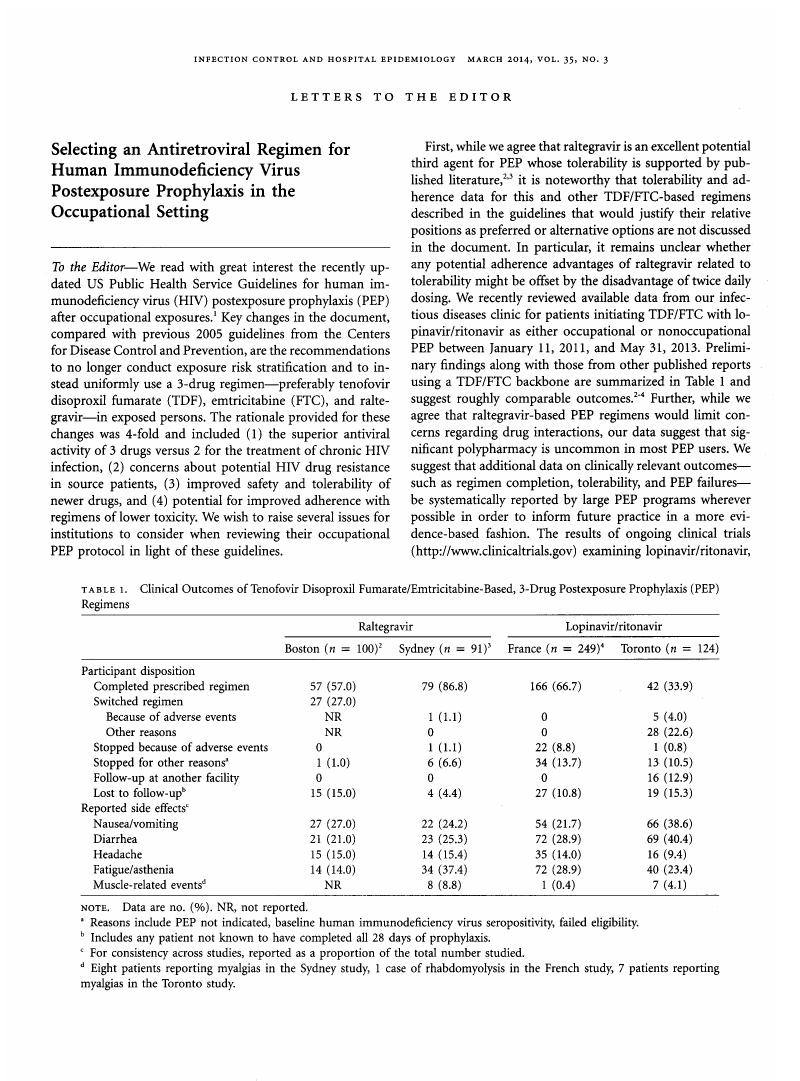Crossref Citations
This article has been cited by the following publications. This list is generated based on data provided by Crossref.
Kuhar, David T.
Struble, Kimberly A.
and
Henderson, David K.
2014.
Reply to Tan et al.
Infection Control & Hospital Epidemiology,
Vol. 35,
Issue. 3,
p.
328.
Ford, N.
Venter, F.
Irvine, C.
Beanland, R. L.
and
Shubber, Z.
2015.
Starter Packs Versus Full Prescription of Antiretroviral Drugs for Postexposure Prophylaxis: A Systematic Review.
Clinical Infectious Diseases,
Vol. 60,
Issue. suppl 3,
p.
S182.
Ford, N.
Shubber, Z.
Calmy, A.
Irvine, C.
Rapparini, C.
Ajose, O.
Beanland, R. L.
Vitoria, M.
Doherty, M.
and
Mayer, K. H.
2015.
Choice of Antiretroviral Drugs for Postexposure Prophylaxis for Adults and Adolescents: A Systematic Review.
Clinical Infectious Diseases,
Vol. 60,
Issue. suppl 3,
p.
S170.
O'Byrne, Patrick
Orser, Lauren
and
Jacob, Jean Daniel
2019.
The “Side Effects” of HIV PEP Use: Forced Reflections and Introspections on Sexual Decision-Making.
Research and Theory for Nursing Practice,
Vol. 33,
Issue. 2,
p.
196.



